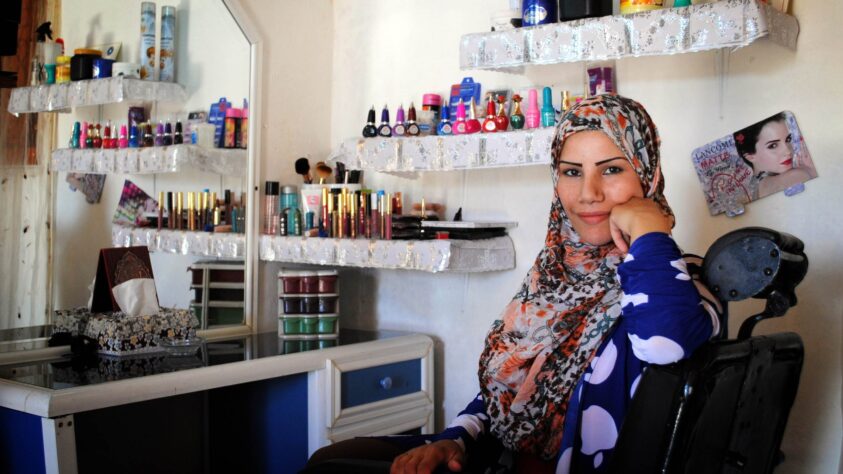
Global pioneer collaboration to help Syrian refugees recover their livelihood
Public and private institutions are for the first time joining forces to facilitate a life changing development program for refugees, due to start in the Middle East. The collaboration is put together by KOIS and financed by Ferd, IKEA Foundation, NORAD, Novo Nordisk Foundation, and the U.S development Finance Corporation (DFC).
– Ferd is constantly searching for opportunities where we can contribute to systemic changes by reaching out to people in vulnerable positions, Ferd owner Johan H. Andresen says. For several years he has been highly engaged in Ferd Social Entrepreneurs and NMI-Nordic Microfinance Initiative.
His previous experience indicated that most people seize the opportunity to improve their lives if given the chance – regardless of their background or current situation. By teaching people how to rebuild their lives, the community gains more resourceful citizens.
– This DIB has it all, says Andresen about the newly established collaboration Development Impact Bond (DIB).
– I´m glad the program is being made available to such a challenged group as the Syrian refugees first, he adds.
Long lasting change
The method has the potential to reduce poverty and social stigma while increasing self-reliance for those currently depending on support. As well as improving their livelihood, the program can transform a host country’s demographic expansion into an economic opportunity. In case of return or resettlement, The DIB can also support refugees’ economic inclusion in their home- or third country.
The humanitarian project is complex, and must be tailored for local needs and context in order to succeed. This commonly entails accepting a level of risk too high for traditional development funders. However, as the DIB is a multi-year and outcome-driven funding model, the investors and donors share the performance risk in a more regulated way.
– Some have philanthropic funds, some have investment money, and some have public assistance money. What we all have in common is that we want to create a viable financing model that will ensure lasting changes for refugees, explains Andresen.
Together they will fund a program run by the Near East Foundation (NEF). The organization is responsible for the micro-enterprise creation programme aiming to help refugees and their host communities.
Aiming for a new standard
As an initial investment, Ferd will contribute with two million dollars to the project. The Ferd owner admits he has been impatient at times, as the idea for the DIB started more than two years ago. To ensure progress he has been involved from day one and played a key role in introducing the Norwegian Agency for Development Cooperation (NORAD) to the collaboration.
– To set a new and better standard, which also is sustainable, we must say “show me how” instead of looking for mistakes, Andresen says. He points out that the DIB consists of several large organizations – each with their own internal routines and controls.
As nothing similar has ever been done before, the framework and structure of the project had to be created from scratch.
– Now that the agreements are in place I´m confident that the effort and time everyone have put into this will be worth it, Christian Halvorsen says. He is responsible for the implementation of the investment on behalf of Ferd.
Hopes for the future
The program aims to teach refugees how to develop microenterprises and make a living from the companies they form. It is expected to support 4,400 refugees and 3,400 business start-ups in Jordan during the first four-year-period. To succeed, Halvorsen believes that measuring the impact is key.
– The expertise and experience of KOIS and the other partners have been key in this project. From our side it has been important to achieve a good balance between social and financial results throughout the project., he continues.
– There will be an independent evaluator that will rigorously assess the projects impact on a set of predefined social goals, such as number of active businesses after 10 months, household consumption and the influence of women. Maximum social score will generate a 5.1 percent annualized return for investors, Halvorsen elaborates.
Although the DIB has a return potential, the current focus is to get the program started to help Syrian refugees towards a brighter future – with better economy and far less stigmatization.
The program is currently being set in motion in Jordan, while the second tranche of the DIB is expected to launch in Lebanon in near future.
– The dream is that the concept itself succeeds on the ground, so that the model can be applied successfully again and again, Johan H. Andresen concludes.
For more information, please see link to pressrelease and homepage.